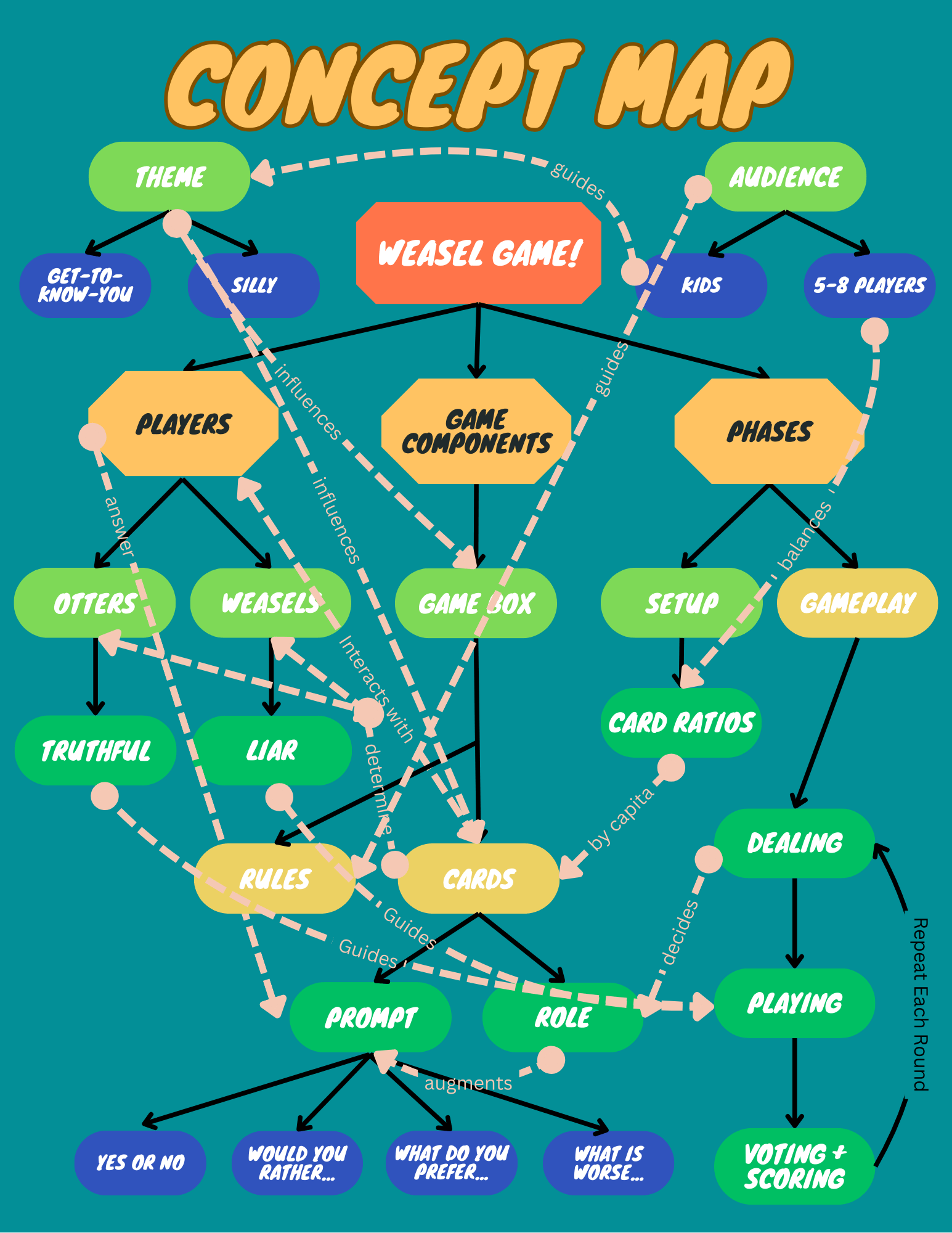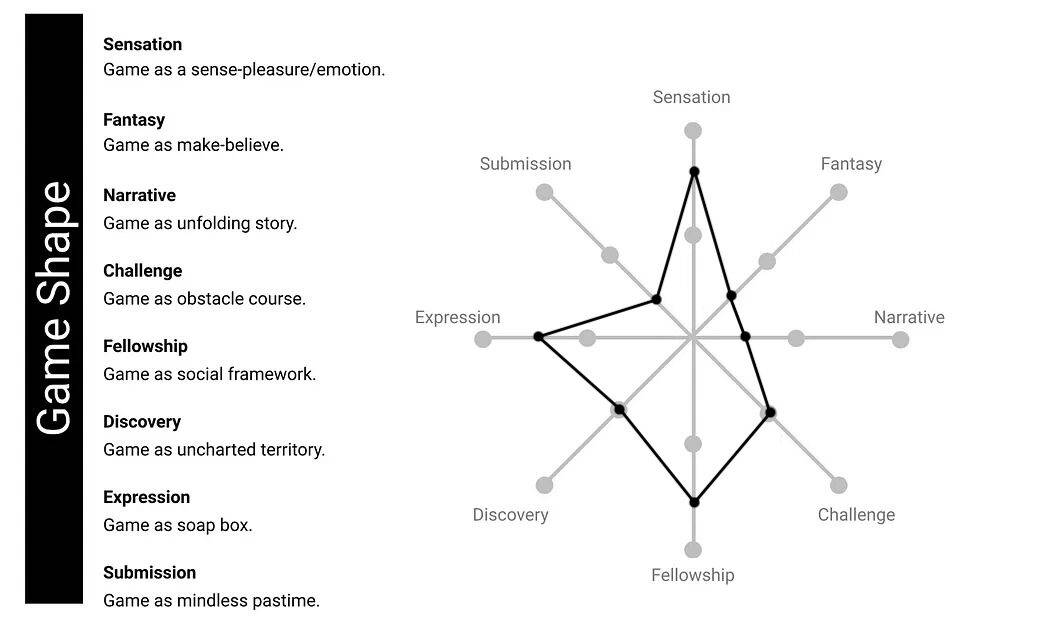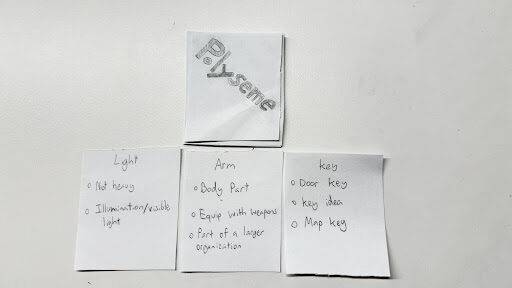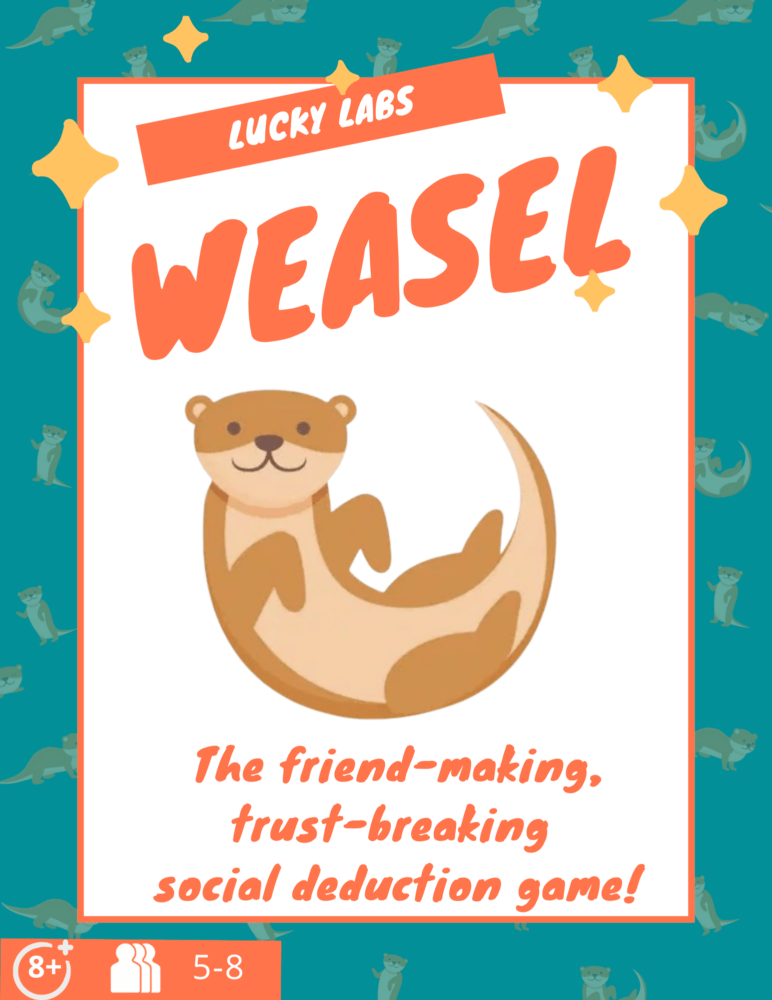Created by Justin B, Noe Chicas-Aranda, Richard Chen, and Victor Chen
Weasel? What’s that?
Our game, “Weasel,” was designed to create moments of fun through suspicion and deception. We wanted to craft an experience using simple game mechanics to create a silly environment for social deduction and getting to know people. The game builds tension and creates memorable moments of fun and excitement.
At its core, Weasel plays with the dynamics of trust in social groups. Through roles that force a player to tell the truth or lie, we create a setting where everyone is second-guessing each other. In this environment, players’ storytelling ability, picking up tells, and using personal knowledge of others become assets. The game has a twist; sometimes, nobody is lying. This mechanic was included to intensify the feeling of suspicion between players further. The game has minimal components, along with straightforward and intuitive rules to ensure players of all ages can jump right in and play. In particular, it is built with older children in mind, kids 8 and up who don’t take themselves too seriously but are still old enough to understand the rules.
We intentionally designed Weasel as a social deduction and get-to-know-you game where players try to catch lies in each other’s stories and arguments in a low-stakes environment. This intention is seen in the game’s art style and the silly, harmless nature of the prompts. The prompts are also designed to be binary, making it easier for players to take a clear stance and for the Weasel to take a side without feeling uncomfortable lying to other players. Through convincing lies and honest stories, playing this game helps people of all friendship levels learn about others, from both their truths and creative fibs. We do our best to create a safe environment for play by ensuring nobody has to answer a prompt they don’t want to. Players can skip any prompts they don’t feel comfortable engaging with.
Ultimately, Weasel is not about winning points—it’s about those electric moments of catching lies, revealing truths, and the wild accusations across the table.
How does it work?
You’ll find the rules for the game in our print-and-play copy linked below. However, from a design perspective, the game works by leveraging various game mechanics to create a fun, on-theme experience for its target audience. Below is a map of the various aspects of our game and how they are interrelated:

The Formal Elements:
For Weasel, we initially wanted to focus on getting to know you and social deception, with an emphasis on quick thinking and adaptability. We wanted to test games where the “spy” is variable, both in quantity and throughout the game. We thought that constantly doubting alliances and allowing freedom of role would prove to be a fun game mechanic. It’s inspired by folk games like Mafia and Chameleon, but has a stronger focus on negotiation and deceit.
Our game initially prioritizes player interaction (fellowship), strategic improvisation (expression), and the tension of uncertainty (challenge). We designed Weasel to embrace a zero-sum outcome, as our initial game has clear winners and losers. However, since players can shift their role mid-game and swap over to another team at any time, we ideally made the game not determined until the very end, which was one of our other goals. We hoped that this mechanic would lead to betrayals, keeping alliances temporary. Although there is no established plot, the game thrives on emergent narratives that players create themselves. By not having scripted scenarios, we hoped to keep each round unpredictable, tense, unique, and tailored to the group.


Additionally, you can view a video of our final playtest here:
Want to Play?
You can download a print-and-play copy of “Weasel” by visiting this link: https://drive.google.com/file/d/13DGOEPLfNyowv_Ij0_sDVUO4fgMT0rAo/view?usp=sharing
Citations:
Weasel Icon: https://www.shutterstock.com/image-vector/weasel-icons-set-cartoon-vector-mink-2469212633
Otter Icon: Generated using GPT-4o using [Weasel Icon] as a reference
Appendix:
The original version of the prototype, “One Was a Lie,” was a game called “Polyseme.” It was focused on sneaking a special word into your conversations with other players. However, after reviewing the mechanics and receiving preliminary feedback from the teaching staff, we decided to refactor “Polyseme” into “One Was a Lie.”




